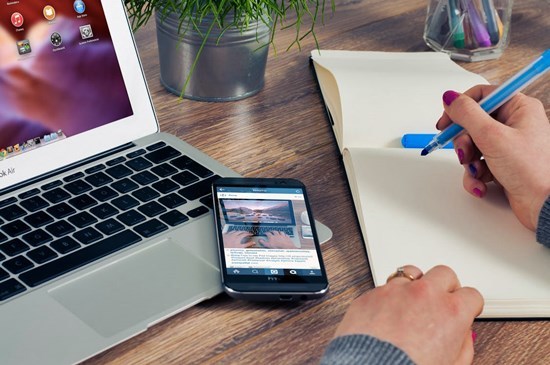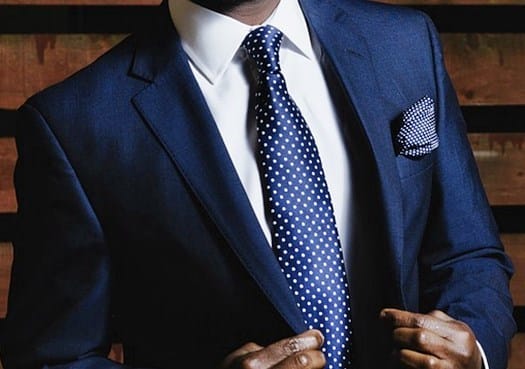Getting ready to be interviewed can be nerve-wracking. You might even be nervous during the interview itself. But, walking out and wondering if it went well can cause the most stress. Thankfully, there are ways to determine how well an interview went, and if you’re likely to get the job.
If you want to know how to tell if a job interview went well, there are signs to look for both during and after the event. These aren’t necessarily things you should be focused on at the time.
But, once it’s is over you can reflect on how it went. If you know what you’re looking for, you’ll have a better idea of what your potential boss may have been thinking. You’ll also have a better idea if it’s likely you’ll get hired or not. Was it really a bad job interview?
If you think your job interview went well but you haven’t gotten a call, don’t panic. The advice in this guide will help to give you peace of mind about how your interview went. We’ll also let you know what you can do after an interview for best practices, and to make a good impression.
How Long is a Good Interview?
There is a ‘sweet spot’ when it comes to how long a job interview should last. Too short, and your potential employer may not be getting a full impression of you. Too long, and they may think you’re wasting their time and won’t get a healthy return on their investment.
You should let the employer dictate how long the interview ends up going. You should never try to cut it short or extend it yourself. For a face-to-face interview, you should expect it to last for about 30 minutes.
If you want to know how to tell if a phone interview went well, one thing you can think about is how long it lasted. Phone interviews can be challenging to read. You don’t have body language to check out, and sometimes people can feel awkward talking on the phone.
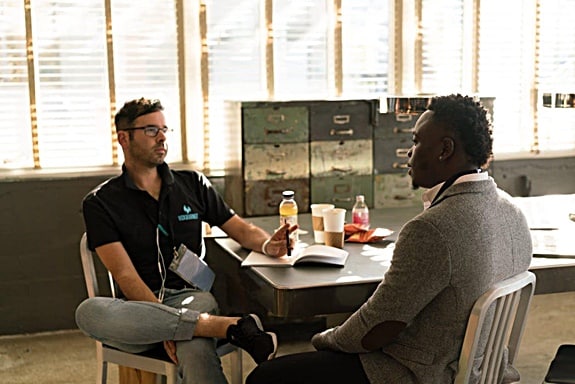
If your phone interview was also about 30 minutes, that’s a good sign. It probably means that your potential boss was interested in what you had to say and wanted to make sure to get in all their questions.
If you walked out of your job interview or hung up the phone and you’re entirely unsure whether you’ll get hired, don’t worry. Use the signs listed below to help ease your mind. If you noticed any of them during the interview, there’s a good chance the company is interested in you.
-
Your Interview Went Long
Even though we just mentioned what the average time for an interview should be, there are exceptions. Again, you should never push to have a longer interview than anyone else. Interview schedules are usually pretty tight. This is especially true if many people are interviewing for the same position.
But, if the person interviewing you keeps asking questions, and even goes off-topic with side questions, it can be a good sign. If they are the ones extending the time because they want to know more about you, It’s usually because they’re interested.
Few employers would willingly throw off their schedule for no reason. So, if they end up getting a little ‘behind’ because your interview ran long, it could be a good sign. It means that they liked your answers and wanted to know more about what you could do for the company.
-
You Notice Positive Body Language
One of the benefits of having a face-to-face interview is that you can read someone’s body language.
It can tell you a lot about how your interviewer is feeling and what they might think of you. There is a definite difference between positive and negative body language; you have to be able to recognize those differences.
Some examples of good body language include:
[su_list icon=”icon: check-circle”]
- Consistent eye contact
- Smiling
- Leaning forward to hear
[/su_list]
Pay attention to these subtle signs. They could mean your interviewer is interested and intrigued by what you have to say. If you start to notice that they lean away from you, are looking down frequently or have their arms crossed over their chest, you may want to change your approach.
If you’re not overly skilled in picking up on body language, look for positive affirmations instead. Maybe your interviewer isn’t giving you a lot to work with when it comes to how they move. But, positive responses are hard to ignore.
If you answer a question and the interviewer respond with something like, “That’s a great answer,” or “That’s what we’re looking for,” you’ll be able to tell how they feel. If you notice a combination of both positive body language and affirmations, you can take comfort in knowing they’re probably interested.
-
You ‘Click’ with the Interviewer
Some things are just meant to be, and it can feel that way if you instantly have a rapport with the person interviewing you. The best interviews are the ones that tend to feel more casual and open. You may feel as though you’re talking with an old friend instead of a potential employer.

It’s still essential to maintain a professional demeanor, no matter what. But, if you notice that you and your interviewer seem to have a connection, it could be a good sign. Part of hiring someone is based on their personality, not just their ability to work.
If the person interviewing you likes your personality, you may have a better chance of getting hired. They might think that you could add something to the business and help to motivate or inspire others.
-
Your Interviewer Wants to Know if You’re in Demand
There’s a specific question you should listen out for if you’re wondering how your interview is going: “Are you interviewing with anyone else?”
If your interviewer asks you about other potential job prospects, consider that a good sign. It likely means they are curious about how in demand you are. They want to know that so they have a better idea of how quickly they need to move to hire you or send you to the next stage of interviewing. If they know you’re interviewing with several other companies and they want you, they might feel pressured into hiring you faster.
A clear sign that they’re feeling this pressure is if they set up a second interview before you leave the first one. Another is if they call you right away to move onto the next step of the process. The sooner they want to get you to the next stage, the more interested they are in hiring you quickly, so another company doesn’t.
-
You Meet Important People
It’s rare that you’ll meet any big decision makers or potential colleagues in an interview. More often than not, an interview is between you and either one other person or a small group. But, if you’ve been going through your interview for a while and the interviewer invites you to meet people within the company, consider it a positive thing.
When this happens, though, it’s also still a part of the interview. Your interviewer will pay attention to how you interact with these potential colleagues. First impressions are important. You might click with your interviewer but not with other people you could have to work with. Don’t ‘relax’ during this time. It’s important to be as professional as possible, even when casually meeting people.
-
You’re Told What Your Responsibilities Would Be
Most of the time, interviewers will remain neutral. An interviewer will usually talk about what a successful candidate will do in the position you’re interviewing for. If they change their language, pay attention to how you fit into it.
For example, if they start talking about what you would be doing in this position, instead of a candidate, it could mean that they are already viewing you in that role. It may be a slip up on the part of the interviewer if it only happens once. But, if they go into the details of the job and the daily tasks, and keep referring to you, it’s a positive sign they are considering you to fill the role.
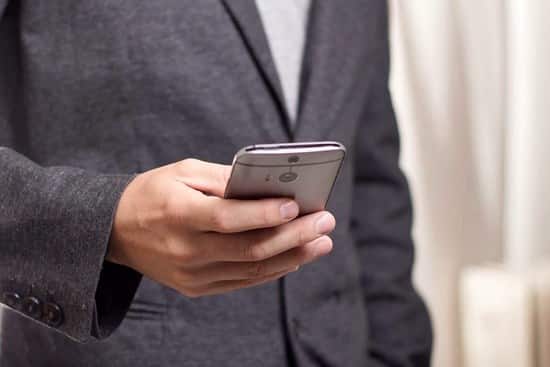
Besides talking about what your role would be in the job, salary may also come up. Usually, an interviewer won’t talk about how much you’ll make right away. But, if they’re serious about hiring you, they’ll push through that potentially-awkward part of the meeting because they want you to stay interested. If they talk about the salary you can expect once you start working, it’s a great indicator that they want to hire you as soon as possible.
-
You Feel Excited
Consider how you feel when you walk out of the interview. Even if you’re unsure how it went, how do you feel about the job and opportunity? A sign of a good interview can be reflected in how excited you are about the job. If the interviewer was trying to sell you on the job, it’s likely they’re sold on you filling it.
So, if they started talking about how great the company was to work for, all the positive things you can expect, etc., it’s probably because they want you to get excited about the opportunity. When you walk out of the interview feeling sold on the company itself, it’s because the interviewer did their job if they want to hire you.
You can also tell if this is the case if your questions are thoroughly answered. If an interviewer is interested in you, they’ll want to make sure any questions you may have are answered in full. They won’t want to leave you with any doubt or confusion.
-
The Interviewer Uses Your Name Frequently
This can be a subtle sign to pick up on, but an important one. If the interviewer keeps using your name throughout the conversation, it’s usually because they’re trying to engage you. They’re picturing you joining the team and trying to gauge how that feels.
It’s a good sign because they’re already thinking about working with you. We’re often so used to hearing our own names throughout the day that this can be an easy sign to miss. But, try to keep track of how often the interviewer inserts your name into the conversation.
-
You Get a Solid Timeframe
The interview process works differently for every company. Some businesses have a strict policy on how the process should run. Others use a more casual approach. If your interviewer tells you what you should expect, or when you should expect to hear from them when the interview is over it’s a good indicator that things went well.
For example, if the HR person at the business tells you when you should expect to get a call following up on the interview, it’s likely they’re interested. That way, you can expect their call and be prepared for it. It could either be the call that officially hires you or at least moves you on to the next part of the process. They’re telling you this for a few reasons. First, they want you to be around to accept the call and quickly move onto the next step.
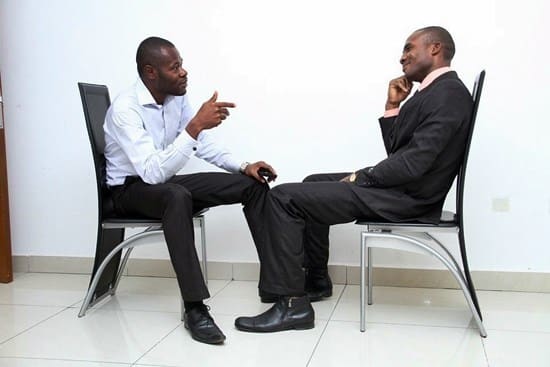
They may also be telling you this, so you don’t rush off and get an interview with another company. If you’re confident that you’re going to get a call and move on in the interview process, you may be less eager to go interview somewhere else. If the company wants you, they’re counting on that.
-
You’re Invited to Ask Questions After the Interview
It’s always a good idea to prepare and ask questions during an interview. You don’t want to walk away from the experience feeling confused or regret that you didn’t ask something. But, it’s nearly impossible to think of every possible question that you might want an answer to. Maybe the interview itself sparked new questions that you need answers for.
If your interviewer ends the meeting by inviting you to call or email with any other questions you may have, it’s a positive sign. They want to make sure you’re confident and clear on what the job looks like. They’re interested in you, so they want you to be interested in them as well. They know that if you’re forced to sit there wondering about things with no answers, that confusion can turn to doubt, and you may look elsewhere.
So, if you’re invited to ask more questions, take advantage of the opportunity!
What to Do After a Job Interview
Once you leave, you can breathe a sigh of relief. This is especially true if you noticed any of the positive signs listed above. But, what many people forget is that the post-interview process can be just as crucial as the interview itself.
Use these quick tips to make your post-interview experience just as positive as the meeting itself:
[su_list icon=”icon: check-circle”]
- Analyze how you did. Were you able to pick up on any of the signs listed here? How do you feel you handled yourself during the interview? What were some of your best and worst moments? Focus on the positive things, but also consider what you could do better for your next interview.
- Consider how you feel about the company. If the interviewer wants you on board, they’ll probably be eager to tell you all the positive things about the company and how great it is to work there. But, how did you feel about it? Did you leave feeling excited to work in that environment? Or, was there something about it that you didn’t like?
- Get contact information. Before you leave your interview, make sure you get the interviewer’s contact information. Or, ask the receptionist for the email addresses of everyone you talked to that day.
- Don’t give up on your job search. Even if the interview went well and they want to hire you quickly, you shouldn’t immediately give up your job search. If you already have interviews lined up with other companies, don’t cancel them right away. Give yourself, and those other businesses a chance.

When Should You Send a Thank You Email?
Sending a thank you email is proper etiquette after a successful interview. It’s a simple action that adds a nice touch to end the interview. Before you do send an email, there are a few more etiquette tips that can make the nice gesture go even further:
- Send your thank you email as soon as possible. If you had an interview in the morning, send a quick note that afternoon. If your interview was later in the afternoon, send your letter the following morning.
- Be sure to recap some of the key points that happened during the interview in your thank you note. This could include your strengths for the job, or answer questions you may not have had a solid answer for during the interview.
- Make your thank you specify that it’s personal. If you were interviewed by more than one person or met with other colleagues, don’t send out a mass email with the same content. You’ll make a stronger impression if you personalize each one. No two emails should be the same, because they may forward them to each other.
- An email may not always be the best option for a follow-up, depending on the type of company you’re interviewing with. More traditional businesses or small businesses might appreciate a small thank you card in the mail. It will capture their attention and let them know you went the extra mile to thank them for their time. Nowadays, this is a unique gesture that they won’t likely forget. But, if you interviewed with a large, tech-savvy company, an email will suffice. Judge the general style of the company you interviewed with and use your best judgment.
Besides sending a follow-up email, you can also use technology to your advantage. A few days after your interview, consider sending a personal LinkedIn request to your interviewer. When you send your request, you can include a short, personalized message. This message should express that you are grateful for their time, and you should show your interest in the position.
You can use your thank you email as another way to determine if the interview went well. Since it’s polite to send your email so quickly after the interview, check to see if your interviewer responds. They aren’t obligated to. But, if they promptly send you a response and end up thanking you for coming in, it’s likely they’re excited to move to the next step.
How Do I Know If I’ll Get Hired?
By using the signs listed in this guide, you’ll have a better idea of how your job interview went. Picking up on these signs can mean you’ll have to pay close attention during the interview itself. But, it’s also vital that you reflect on the process afterward. You may remember things that happened that you didn’t pick up on during the interview.
No matter what, you should continue to follow proper etiquette before, during, and after a job interview. If a company is interested in you, there are plenty of ways they’ll let you know. Being kind and courteous will usually only help your chances of getting hired.
Don’t get nervous if your job interview went well but you haven’t yet gotten a call. Again, companies have different timelines for how they hire people. Keep your prospects open, but don’t get discouraged if you think an interview went well and you haven’t heard anything. If you noticed some of the indicators listed above, it’s likely you’ll be contacted.
We hope this guide has been helpful if you’ve been wondering about a recent job interview. Or, if you have an interview coming up, we hope you can use these tips to gauge how well it’s going! Noticing these things can make the entire process less stressful, and more encouraging. And when you land the job, here are some tips for your first day at work.
[/su_list]


